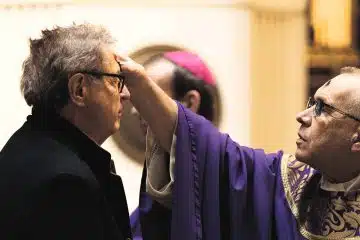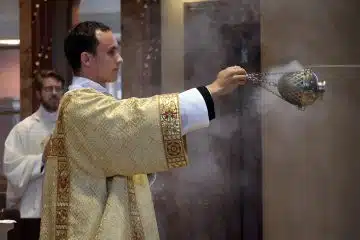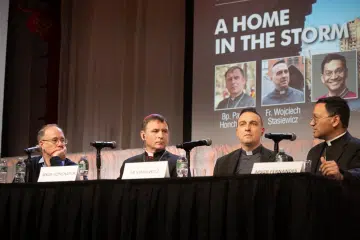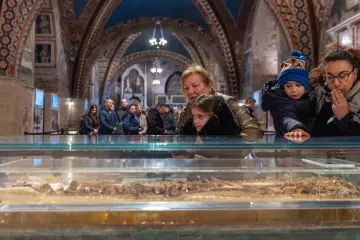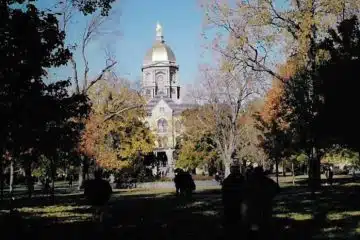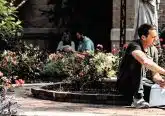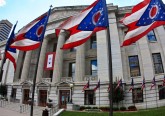The Separation of Church and State
By Father John Paul Walker, O.P.
A few weeks ago, a rather angry woman accosted me after Mass on a Sunday because I had spoken about Issue 1 during part of my homily. “Separation of Church and State!!” she yelled as she waved her finger at me. So I’d like to start my reflection there: separation of church and state.
This is one of those phrases we hear all the time, yet the phrase never appears in our United States Constitution. Nor does it appear in the Bill of Rights. The First Amendment does indeed address the relationship between church and state, but using very, very different words:
“Congress shall make no law respecting an establishment of religion, or prohibiting the free exercise thereof.”
The first part of that sentence forbids our country from having one official “state religion,” so that a variety of religions might flourish. But it’s the second part that is really significant. Congress shall not prohibit the free exercise of religion. In other words, the amendment is not there to somehow “protect” the government from the influence of religious people and/or religious principles. (Indeed, our Founding Fathers would have considered such an idea utterly absurd.) It is meant to do the complete opposite: to protect religion and religious expression from being hemmed in or restricted in any way by the government!
Now, it is true the Church does not endorse specific candidates for office. That is not allowed, and if the church did so, it would risk losing its tax exempt status. However, when it comes to specific issues, the Church can endorse (or fight against) a specific bill/issue/etc. This is perfectly legal and does not in any way threaten our tax-exempt status.
The constitutional amendment being proposed as Issue 1 is aiming to enshrine abortion-up until the moment of birth, for any reason-as a constitutional right. The direct and willed killing of an innocent human life is an objective moral evil. As believers, individually and collectively as the Church, we not only can take a side on that issue, but also must thus the signs in our church lawn, information in our bulletins, and all the other ways we are advocating against the passage of this horrifically radical proposed amendment.
In our second reading today from Phil l:20ff, St. Paul speaks about how he is torn between remaining here on earth (and the “fruitful labor” that comes from being here) and being with God in heaven. He says this because he knows full well that the earth is not our true home—heaven is. While we are here on the earth, we are but travelers, pilgrims, sojourners. And yet, we also know that we have a calling to not only get ourselves to heaven, but also help as many other people as possible get there as well.
This is a big part of our true motivation as Catholics for political involvement. We should not vote for laws that personally benefit us in a selfish way, but vote for laws that will help to shape our country, government, and culture in such a way that these things help people get to heaven, rather than being obstacles making it more difficult for them to get to heaven. If Issue 1 passes in November, we are going to wake up the next day in a state that will be significantly more antagonistic to promoting a way of life that helps lead people to heaven. We must do all we can to prevent that … for our sake, for the sake of all our brothers and sisters in the human family who live here with us, and for the sake of future generations.
To fight against Issue 1 is an act of love. So between now and November, all of us are called, in some way, to “fruitful labor” in the Lord’s vineyard on behalf of life, parental rights, and family.



